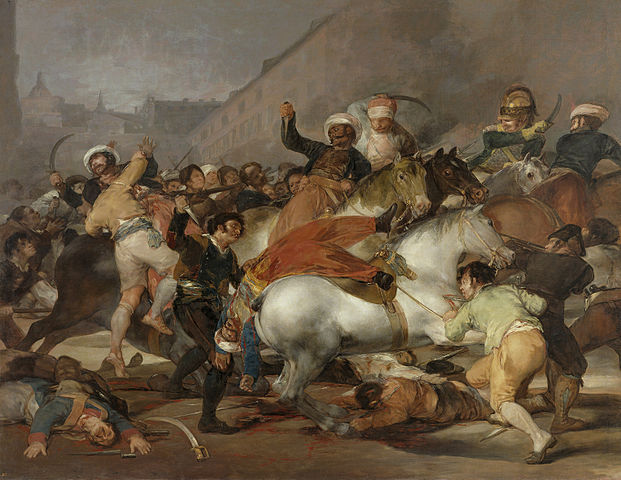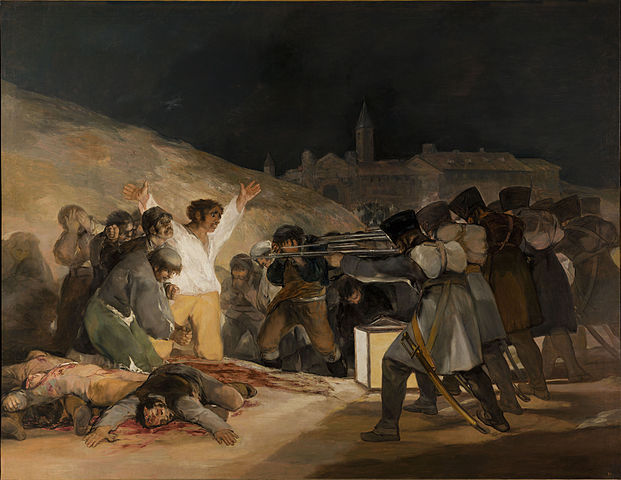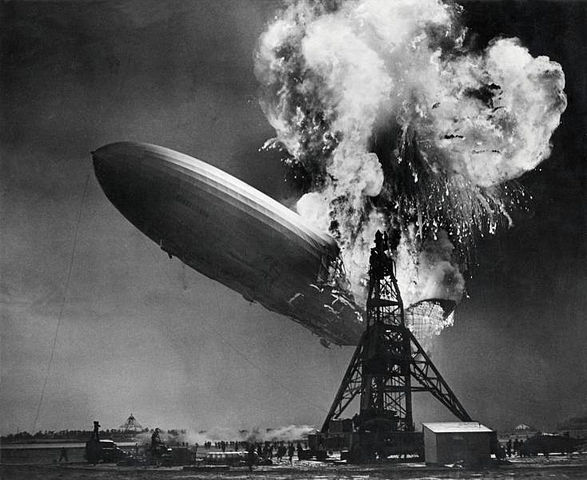There is always much to learn from quotes and their historical significance. Read on for a collection of quotes and general history from May 2nd – 8th.

May 2, 2011
“I have sworn to only live free. Even if I find bitter the taste of death, I don’t want to die humiliated or deceived.”
– Osama bin Laden
On May 2, 2011, Osama bin Laden was killed by U.S. Special Forces in Abbottabad, Pakistan. The operation, code-named Operation Neptune Spear, ended the 10-year manhunt following bin Laden’s role in the September 11 attacks. Although the raid was supported by over 90% of the American public, it’s not without controversy. Some question why bin Laden wasn’t captured alive, being that he was unarmed. Also, the decision not to release any photographic or DNA evidence of bin Laden’s death has led to controversy.
May 3, 1808
“The population of Madrid, led astray, has given itself to revolt and murder. French blood has flowed. It demands vengeance. All those arrested in the uprising, arms in hand, will be shot.”
– Marshal Joachim Murat
Hundreds of Spaniards were rounded up and shot by the French in Madrid on May 3, 1808. The executions came in response to the Dos de Mayo Uprising from the day before. These two events kicked off the Peninsular War fought by Spain, the United Kingdom, and Portugal against Napoléon Bonaparte’s French Empire. Lasting nearly six years, the war finally came to an end on April 17, 1814, when Ferdinand VII was restored to the Spanish monarchy.


May 4, 1979
“What Britain needs is an iron lady.”
– Margaret Thatcher
Margaret Thatcher became the first female Prime Minister of the United Kingdom on May 4, 1979. Her uncompromising nature and firm leadership style made her a controversial figure in British politics and earned her the nickname “Iron Lady”. She remained in office until November 28, 1990, making her the longest-serving British prime minister of the 20th century. In that time, she implemented many conservative economic policies emphasizing deregulation, privatization, and reducing the power of trade unions that collectively came to be known as Thatcherism.

May 5, 1891
“Everywhere in the world, music enhances a hall, with one exception: Carnegie Hall enhances the music.”
– Isaac Stern
Carnegie Hall in Midtown Manhattan, New York City, officially opened on May 5, 1891, with a concert conducted by Walter Damrosch and Russian composer Pyotr Ilyich Tchaikovsky. The music hall is named after Andrew Carnegie, who funded its construction, and has become one of the world’s most prestigious venues for both classical and popular music. Designed by architect William Burnet Tuthill, the hall was designated a National Historic Landmark in 1962. The desire of so many to perform there has resulted in the famous joke:
Rumor is that a pedestrian on Fifty-seventh Street, Manhattan, stopped Jascha Heifetz and inquired, “Could you tell me how to get to Carnegie Hall?” “Yes,” said Heifetz. “Practice!”
– Author unknown
May 6, 1937
“It’s burst into flames! Get this, Charlie; get this, Charlie! It’s fire… and it’s crashing! It’s crashing terrible! Oh, my! Get out of the way, please! It’s burning and bursting into flames and the… and it’s falling on the mooring mast and all the folks between it. This is terrible; this is one of the worst of the worst catastrophes in the world.”
– Herbert Morrison, Transcription of WLS radio broadcast describing the Hindenburg disaster
The Hindenburg disaster occurred on May 6, 1937, when the German passenger airship caught fire while attempting to dock with its mooring mast at Naval Air Station Lakehurst in Manchester Township, New Jersey. A total of 36 people died in the accident, 35 of the 97 people on board and 1 additional death on the ground. The ignition source and initial fuel for the fire were never determined and a variety of hypotheses exist today. News coverage and publicity surrounding the disaster shattered confidence in airships and, together with the arrival of Pan American Airlines, brought an abrupt end to the airship era.

May 7, 1824
“What you are, you are by accident of birth; what I am, I am by myself. There are and will be a thousand princes; there is only one Beethoven.”
– Ludwig van Beethoven
Often considered his greatest work, Ludwig van Beethoven’s Symphony No. 9 was first performed in Vienna on May 7, 1824. Composed between 1822 and 1824, it was his last complete symphony before his death in 1827. The symphony was also the first time a major composer used voices in a symphony, helping create the choral symphony genre. Beethoven’s original, hand-written manuscript of the score was added to the Memory of the World Programme Heritage list in 2001, becoming the first musical score so designated!
May 8, 1945
“We the undersigned, acting by authority of the German High Command, hereby surrender unconditionally to the Supreme Commander, Allied Expeditionary Force and simultaneously to the Soviet High Command all forces on land, sea, and in the air who are at this date under German control.”
– General Alfred Jodl, German Instrument of Surrender, Article 1
World War II in Europe officially ended on May 8, 1945, with the overall surrender of Nazi Germany to the Allies. This came after a string of German defeats and surrenders from late April through early May, including Hitler’s suicide on April 30th. Victory celebrations quickly erupted throughout the Allied nations, especially in the UK and USA. Prime Minister Winston Churchill remarked to a crowd in London: “God bless you all. This is your victory. In our long history, we have never seen a greater day than this. Everyone, man or woman, has done their best.” The day is still celebrated throughout much of the world as V-E Day, a term for Victory in Europe Day developed as early as September 1944 in anticipation of victory!
In case you missed last week’s quotes, see History April 25th – May 1st.
To never miss a Quill Quotes post, please subscribe via email and/or follow us on social media!
Leave a Reply